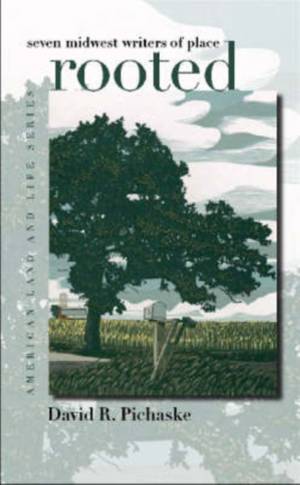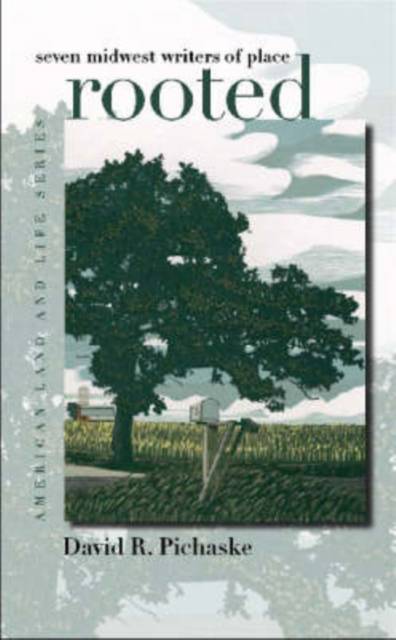
- Retrait gratuit dans votre magasin Club
- 7.000.000 titres dans notre catalogue
- Payer en toute sécurité
- Toujours un magasin près de chez vous
- Retrait gratuit dans votre magasin Club
- 7.000.0000 titres dans notre catalogue
- Payer en toute sécurité
- Toujours un magasin près de chez vous
Description
David Pichaske has been writing and teaching about midwestern literature for three decades. In Rooted, by paying close attention to text, landscape, and biography, he examines the relationship between place and art. His focus is on seven midwestern authors who came of age toward the close of the twentieth century, their lives and their work grounded in distinct places: Dave Etter in small-town upstate Illinois; Norbert Blei in Door County, Wisconsin; William Kloefkorn in southern Kansas and Nebraska; Bill Holm in Minneota, Minnesota; Linda Hasselstrom in Hermosa, South Dakota; Jim Heynen in Sioux County, Iowa; and Jim Harrison in upper Michigan. The writers' intimate knowledge of place is reflected in their use of details of geography, language, environment, and behavior. art or thought: jazz music and formalism in the case of Etter; gender issues in the case of Hasselstrom; time past and present in the case of Kloefkorn; ethnicity and the role of the artist in the case of Blei; magical realism in the case of Heynen; the landscape of literature in the case of Holm; and the curious worlds of academia, best-selling novels, and Hollywood films in the case of Harrison. The result, Pichaske notes, is the growing away from roots, the explorations and alter egos of these writers of place, and the tension between the here and there that gives each writer's art the complexity it needs to transcend provincial boundaries. Quoting generously from the writers, Pichaske employs a practical, jargon-free literary analysis fixed in the text, making Rooted interesting, readable, and especially useful in treating the categories of memoir and literary essay that have become important in recent decades.
Spécifications
Parties prenantes
- Auteur(s) :
- Editeur:
Contenu
- Nombre de pages :
- 355
- Langue:
- Anglais
- Collection :
Caractéristiques
- EAN:
- 9780877459873
- Date de parution :
- 01-05-06
- Format:
- Livre broché
- Format numérique:
- Trade paperback (VS)
- Dimensions :
- 149 mm x 234 mm
- Poids :
- 508 g

Les avis
Nous publions uniquement les avis qui respectent les conditions requises. Consultez nos conditions pour les avis.






